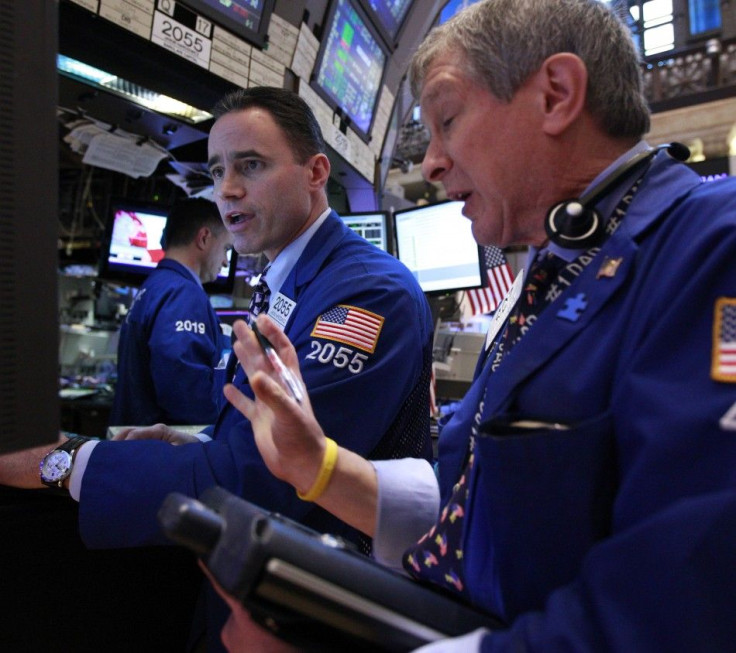U.S. Stocks Fall on Greek Bailout Uncertainty

U.S. stocks fell Friday due to uncertainty with the Greek bailout.
By late Friday morning the Dow Jones Industrial Average was down 118 points, or almost one percent perecnt, to 12,772. The S&P was down 11.90 points to 1,341, and the NASDAQ was down 21.64 points to 2,905.45.
Selling was broad, according to Reuters, with each of the 10 major S&P sectors negative in early trading. The CBOE Volatility index, a measure of volatility referred to as Wall Street's fear index, spiked more than 7 percent, its biggest jump in three months.
Among the most active stocks in trading Friday, Bank of America (NYSE: BAC) was down 11 cents to $8.07 with 118 million shares traded before noon. Alcatel-Lucent ADS was up 29 cents, or 15 percent, to $2.23 on news France's largest telecommunications-equipment supplier will cut as many as 1,800 jobs in Europe.
Stocks rose modestly on Thursday to push the S&P up 7.5 percent for the year after an apparent deal was reached between Greek parties on reforms, leaving equities primed for a pullback.
But the agreement was dealt a blow as workers in Greece went on strike to oppose fiscal reform measures requested by the European Union and International Monetary Fund, as Greek Finance Minister Evangelos Venizelos said the nation needs to reach a decision within days on accepting the terms of a bailout.
They want some binding resolution that some subsequent Greek government is going to be committed to enforcing, and I can understand the reticence of EU officials for wanting this, said Phil Orlando, chief equity market strategist, at Federated Investors, in New York.
Given the fact we've got a seven-percent rally in six weeks and a twenty-five percent rally in four months, it's perfectly reasonable that we should have a little bit of pause here.
The declines put the benchmark S&P 500 on pace for its first weekly decline in the past six.
European shares fell as the request for further cuts in Greece put the deal in jeopardy, with theFTSEurofirst 300 index of top European shares down 0.9 percent.
Bank shares dropped on concerns over the latest stumbling block in the debt crisis. The STOXX Europe 600 euro zone Banking Index fell 2.1 percent and the KBW Bank index dropped 1.5 percent. JPMorgan Chase & Co slipped 1.3 percent to $37.37 and Citigroup Inc shed 1.7 percent to $33.09.
The Dow Jones industrial average dropped 125.48 points, or 0.97 percent, to 12,764.98. The Standard & Poor's 500 Index lost 13.09 points, or 0.97 percent, to 1,338.86. The Nasdaq Composite Index declined 27.97 points, or 0.96 percent, to 2,899.26.
The Thomson Reuters/University of Michigan overall index of consumer sentiment fell to 72.5 in early February from January's 75.0, which was the highest level since February 2011.
Data from the U.S. Commerce Department showed the monthly trade gap for December swelled to $48.8 billion as goods imports climbed to the highest level since July 2008.
Adding to the dour tone, China's imports fell in January, the most since the depths of the financial crisis, raising concerns demand may be wilting more than previously thought, even accounting for shutdowns over the Lunar New Year.
Arch Coal Inc dropped 4.7 percent to $14.85 after it posted fourth-quarter results that missed analysts' expectations and said its 2012 volumes will fall by more than 5 million.
According to Thomson Reuters data, 352 companies in the S&P 500 have reported results through Friday morning, with 63 percent topping analyst expectations, tracking below recent quarters through this stage of the earnings season.
(Reuters contributed to this report.)
© Copyright IBTimes 2024. All rights reserved.











